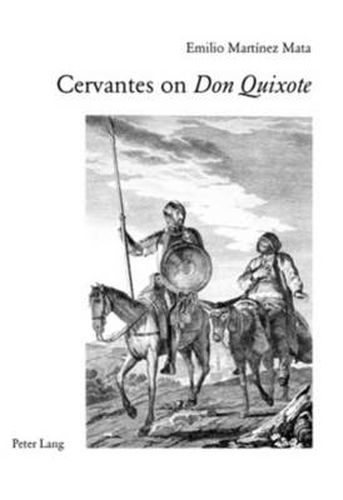Readings Newsletter
Become a Readings Member to make your shopping experience even easier.
Sign in or sign up for free!
You’re not far away from qualifying for FREE standard shipping within Australia
You’ve qualified for FREE standard shipping within Australia
The cart is loading…






Commentary on Don Quixote is as universal as affirmations of the novel’s importance, yet until now no study has examined what Cervantes said about it. In the prologue to the first half of the work (1605) the self-conscious author, in a tongue-in-cheek dialogue with the reader and an unconventional friend, makes a good number of comments on his own book. In the opening chapters of Part 2 (1615), the same sort of witty evaluation continues with remarks by Sancho Panza, Sanson Carrasco and Don Quixote in a lively and extended conversation focused on what has been said about Part 1 since its publication and how the characters feel about those readings. The present study carefully examines and compares these and other self-reflective passages to clarify the work’s successes and failures as interpreted by a privileged reader - the author himself.
$9.00 standard shipping within Australia
FREE standard shipping within Australia for orders over $100.00
Express & International shipping calculated at checkout
Commentary on Don Quixote is as universal as affirmations of the novel’s importance, yet until now no study has examined what Cervantes said about it. In the prologue to the first half of the work (1605) the self-conscious author, in a tongue-in-cheek dialogue with the reader and an unconventional friend, makes a good number of comments on his own book. In the opening chapters of Part 2 (1615), the same sort of witty evaluation continues with remarks by Sancho Panza, Sanson Carrasco and Don Quixote in a lively and extended conversation focused on what has been said about Part 1 since its publication and how the characters feel about those readings. The present study carefully examines and compares these and other self-reflective passages to clarify the work’s successes and failures as interpreted by a privileged reader - the author himself.